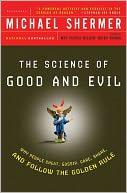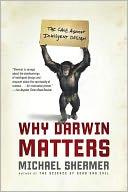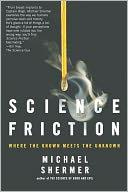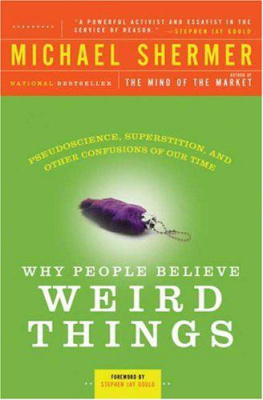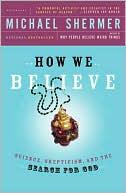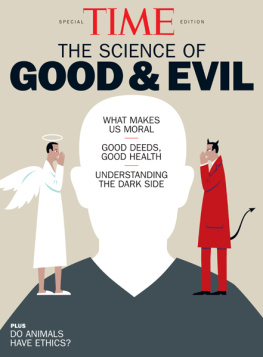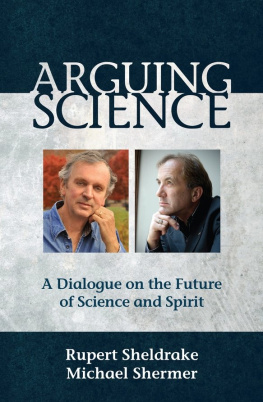ONE LONG ARGUMENT
Our whole dignity consists in thought. Let us endeavor, then, to think well: this is the principle of ethics.
Blaise Pascal, Penses, II, 1670
I n 1959 professional astronomers were polled for their opinions on the then-undecided debate between two competing cosmological theories: Did the universe begin with a Big Bang several thousand million years ago? One-third answered yes. Is matter continuously created in space? Nearly half answered yes. Most telling, to the question Is a Gallup poll of this kind helpful to scientific progress? one hundred percent answered no.
The reason for unanimity on the final question is that scientific debates are not settled by consensus opinion. Unfortunately, in complex human and social issues, separating fact from opinion is not so easy, and for no subject is this more apparent than morality and ethics. Thus, throughout this book I apply a principle I call Darwins Dictum , which states: All observation must be for or against some view if it is to be of any service . The British naturalist and evolutionary theorist Charles Darwin, in a letter to his friend Henry Fawcett, dated September 18, 1861, responded to an accusation made against him in a meeting of the British Association for the Advancement of Science. Fawcett, who attended in Darwins defense, reported that a critic claimed that The Origin of Species was too theoretical, and that he should have just put his facts before us and let them rest. Darwins response is now a classic: About thirty years ago there was much talk that geologists ought only to observe and not theorize; and I well remember someone saying that at this rate a man might as well go into a gravel-pit and count the pebbles and describe the colours. How odd it is that anyone should not see that all observation must be for or against some view if it is to be of any service!
All observation must be for or against some view if it is to be of any service . My approach in this book is to apply Darwins Dictum with a judicious use of data and theory in an attempt to understand both the why and the how of morality, acknowledging that since we are doing science, all claims to any validity for both data and theory are provisional. It is much like Caltech physicist and Nobel laureate Richard Feynmans observation: I can live with doubt and uncertainty and not knowing. I think it is much more interesting to live not knowing than to have answers that might be wrong. If we will only allow that, as we progress, we remain unsure, we will leave opportunities for alternatives. We will not become enthusiastic for the fact, the knowledge, the absolute truth of the day, but remain always uncertain . In order to make progress, one must leave the door to the unknown ajar. This applies, I think, to moral principles themselves as well as to any theory that purports to explain the how and the why of moral principles and behavior.
This balance between doubt and certainty, between open-mindedness and closed-mindedness, is what I call skepticism. Modest doubt is calld the beacon of the wise, William Shakespeare cleverly noted in Troilus and Cressida (act 2, scene 2). In many ways, the search for the origins of morality and the basis of right and wrong moral principles is as important as any discovery we might make; with morality, the journey counts as much as the destination. The two, more so, are inseparable. To be a fully functioning moral agent, one cannot passively accept moral principles handed down by fiat. Moral principles require moral reasoning. Unlike many other fields of human endeavor, where one may reasonably hope to arrive at a consistent set of principles, morality is so fraught with complexities and subtleties that few moral principles are without exception, and contradictions are as common as consistencies. While I have struggled mightily to be consistent in my thinking on the issues encountered in this bookmany of which are the deepest of all questions of the human conditionI am reminded of Ralph Waldo Emersons 1841 observation in Self-Reliance that A foolish consistency is the hobgoblin of little minds. Walt Whitman, in his elegant Song of Myself, offered this out that I take as my own defense in those (hopefully few) places where constancy does not always carry the day:
Do I contradict myself?
Very well, then, I contradict myself;
(I am largeI contain multitudes.)
Given this caveat, as brief intellectual autobiography in the form of an apologia pro vita sua (an apology for ones own life), the how and the why of morality form the basis of the third volume in a trilogy on the power of belief. The first volume, Why People Believe Weird Things, dealt with a variety of subjects within the primary penumbra of my job as the editor in chief of Skeptic magazine and contributing editor and a monthly columnist for Scientific American . In exploring, explaining, and occasionally debunking pseudoscience and superstitions, the book lays the foundation for good science and, in showing how thinking goes wrong, indicates, by implication, how thinking goes right. Because the book deals with certain subjects uncomfortably close and tangentially interdigitated with religionsuch as reincarnation, ghosts, near-death experiences, theories of immortality, psychic mediums who claim to talk to the dead, creationism, and alleged scientific proofs of Gods existenceI was inevitably challenged to present my views on the nature and existence of God, the possibility of an afterlife, and the relationship of science and religion. At first I was flippant in my responses. Whats your position on life after death? a questioner would inquire. Im for it, I would quip with a wink. But over the years it dawned on me, after hundreds of public lectures and thousands of letters, that for most people, lifes ultimate questions are no joking matter.
A couple of years of serious research and reflectiontying together the experiences and thoughts of a lifetime spent thinking about, reading on, and actively committing myself to a variety of religious belief systems (from born-again Christian to born-again atheist to my current position of agnostic nontheist)resulted in the second volume in the trilogy, How We Believe: Science, Skepticism, and the Search for God. In this work I explicated the nature of belief systems, particularly with regard to the God question, and outlined the various positions one can take in attempting an answer. The general categories are obvious: theism is belief in a deity, or deities and belief in one God as creator and supreme ruler of the universe. Atheism is disbelief in, or denial of, the existence of a God. And agnosticism is unknowing, unknown, unknowable. I present these common and historical usages from the Oxford English Dictionary because they represent how people have understood and used these terms, not how theologians and philosophers have finely nuanced them (in How We Believe I provide an extensive bibliographic essay just on these terms and how they can be parsed into dozens of finely graded positions). Since I shall be discussing morality primarily from the position of an agnostic and a nontheist, I should clarify what I mean by these terms.

